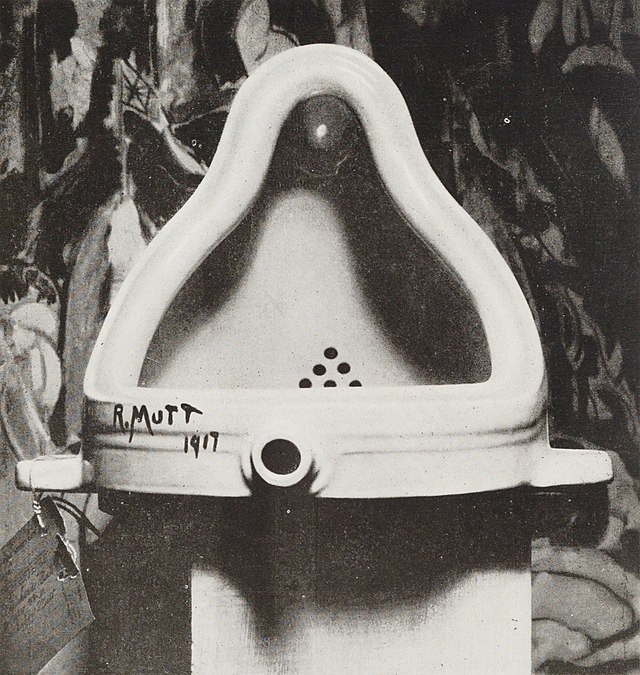Dadaism
avant-garde art movement in the early 20th century From Wikipedia, the free encyclopedia
Dadaism is an avant-garde intellectual movement. It started around the time of the First World War. Although not at first an art movement,[1]p60/61 it did influence art greatly for a time.


History
The movement, formed in Zurich, Switzerland, was heavily influenced by the war in Europe.[1][2] Its artists rejected modern capitalist society. They used nonsense and protest in their works. Dadaist artists expressed their discontent with violence, war, and nationalism, and were close to the radical far-left. The whole point behind Dadaism was to prove that anything could be art if the artist declared it to be. This was to prove that if everything could be art, then nothing could be art. This outraged many artists as Dadaism deemed their labour intensive artworks meaningless.
The art of the movement spanned visual, literary, and sound media, including collage, sound poetry, cut-up writing, and sculpture.[3]
Influence
Its peak was 1916 to 1922, and it influenced surrealism, pop art, and punk rock. It went against the standards of society. Followers of Dadaism included Antonin Artaud, Max Ernst, and Salvador Dali. A later version, called Neo-Dada, arose in the 1960s.
Dadaism began in central Europe, in Berlin and Zurich. Dadaism moved to Paris with Tristan Tzara. Tzara would go on to 'lead' the dadaists of Paris such as as Man Ray, Jean Cocteau, and Marcel Duchamp.
Dadaism is also closely associated with the concepts of the grotesque, the absurd, and the macabre. The idea of ridiculing the absurdity of existence has its expression in the dramatic art of Samuel Beckett and the so called school of Paris, which included Arthur Adamov, Jean Genet, and Eugene O'Neill.
The word "Dada" may be an allusion to an infant's first words, such as "Mama". No one knows who invented the name, but there is some historical evidence which says that Tzara picked it out at random from a German-French dictionary, since "Dada" means "hobbyhorse" in French.[4] A hobbyhorse is a long stick with a toy horse head attached which a child can hold in front of them to pretend they are riding a horse. Still, the source of the name is not widely agreed upon.
References
Wikiwand - on
Seamless Wikipedia browsing. On steroids.
